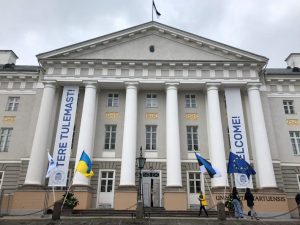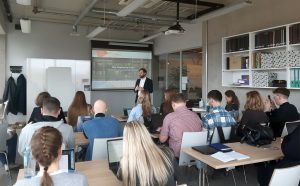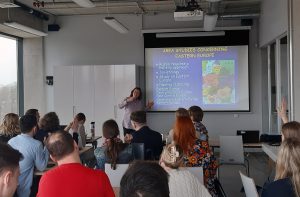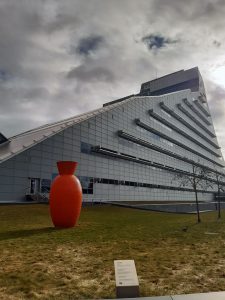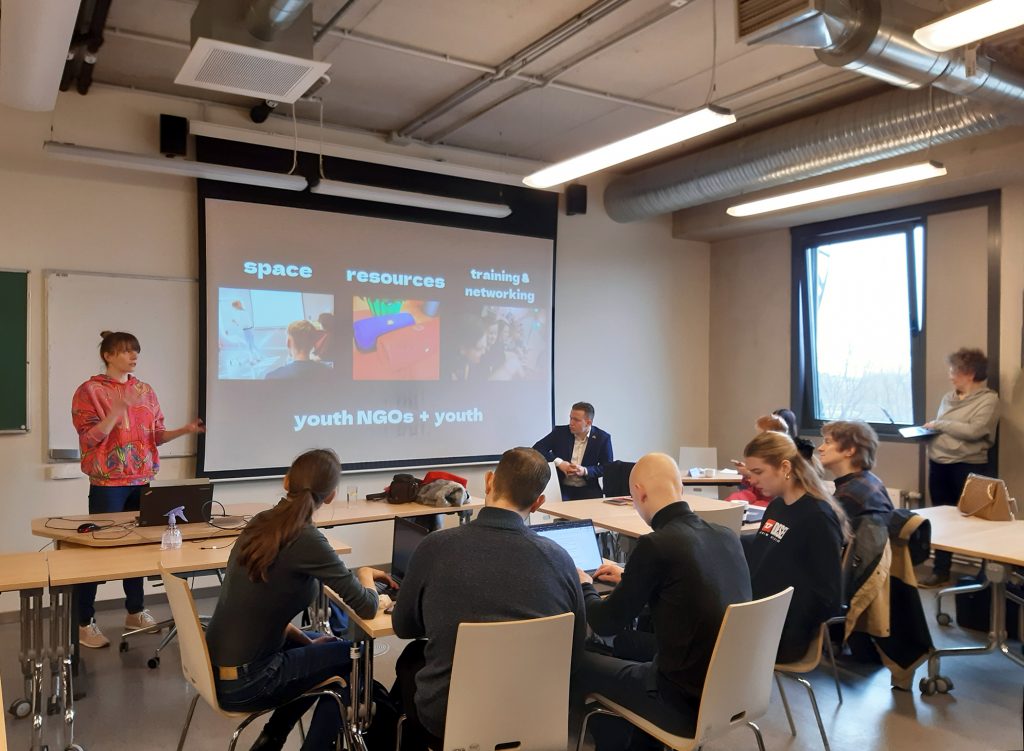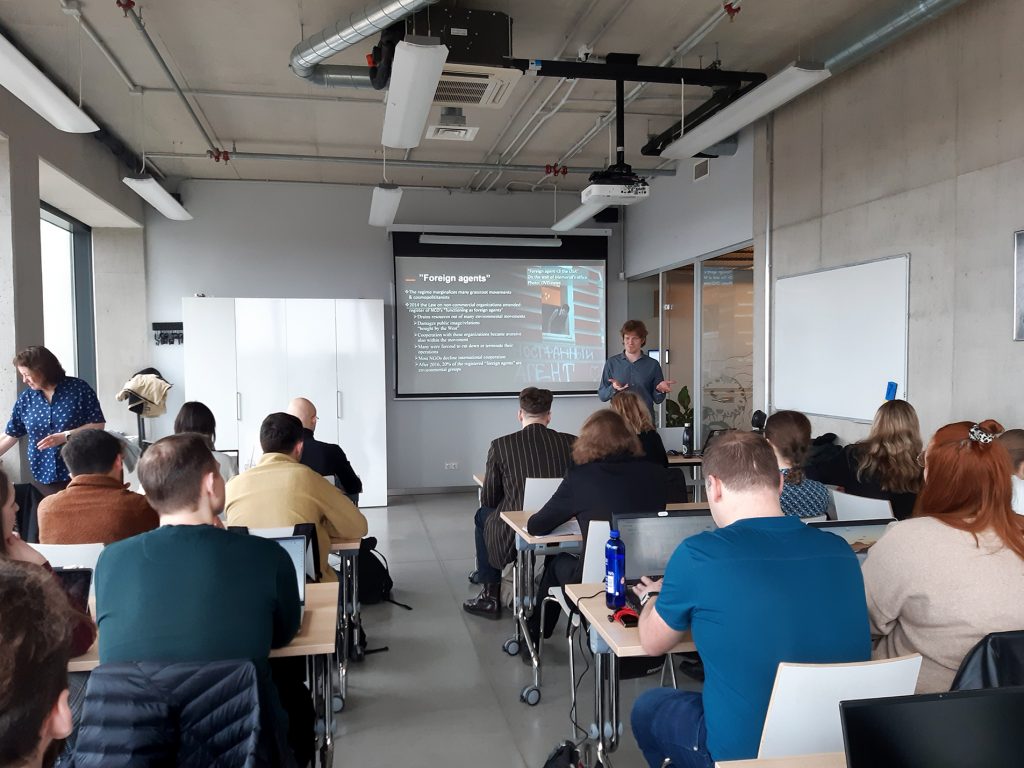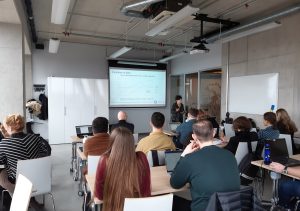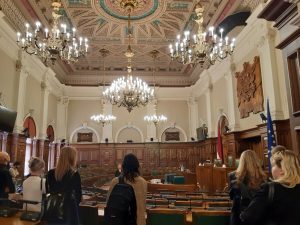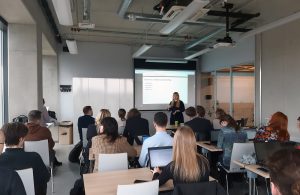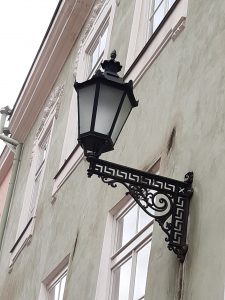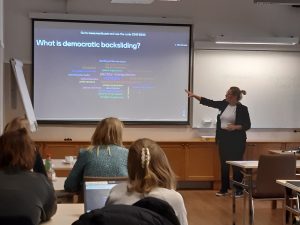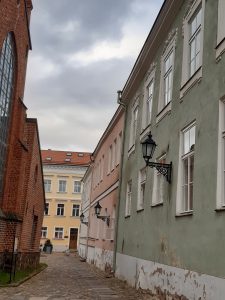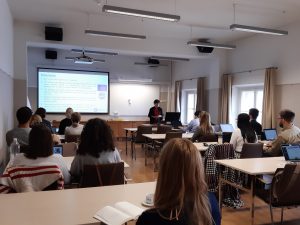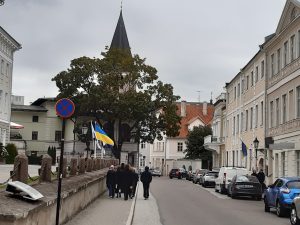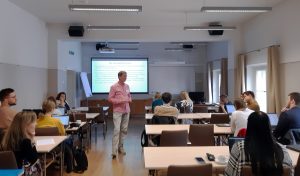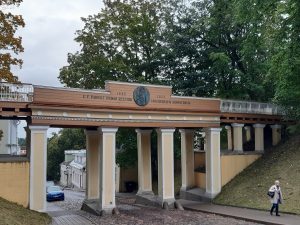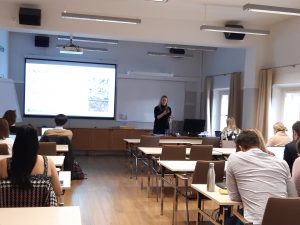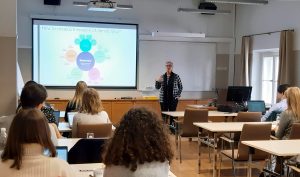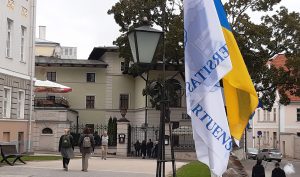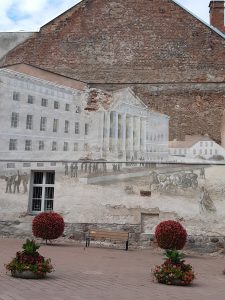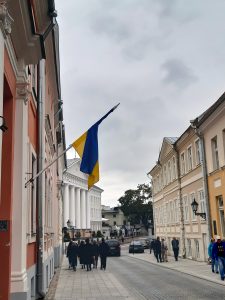8.12.2023
A summary of pedagogical experiences from the BAMSE Riga intensive course “The resilience of Baltic and Eastern European democracies: Theoretical and methodological approaches” has been published. Welcome to read the summary in the Riga intensive course website.
Here end the three successive BAMSE 2021-2022 projects, run by the the Baltic-Nordic Network for the Advancement of Methodology in Area Studies (BAMSE) network. We hope that the pedagogical and methodological summaries produced by the BAMSE projects will be helpful in planning future Nordplus Higher Education intensive courses and other teaching as well.
Thank you BAMSE partners, teachers, and students for your contributions!
The BAMSE network is glad to announce that the Nordic-Baltic cooperation continues. Welcome to visit the Nordplus funded BAMSE spin-off project “Building virtual exchange capacities in the Baltic Sea Region” coordinated by the University of Tartu.
28.9.2023
The fifth “regional responses” part of the BAMSE Riga intensive course blog series has been published.
Welcome to read students’ texts on BAMSE blogs website!
26.9.2023
The fourth “regional responses” part of the BAMSE Riga intensive course blog series has been published.
Welcome to read students’ texts on BAMSE blogs website!
20.9.2023
The third “regional responses” part of the BAMSE Riga intensive course blog series has been published.
Welcome to read students’ texts on BAMSE blogs website!
28.6.2023
The second “regional responses” part of the BAMSE Riga intensive course blog series has been published. Students analyze resilience of the Ukrainian and Baltic societies and cooperation of the Baltic states.
Welcome to read students’ texts on BAMSE blogs website!
22.6.2023
The BAMSE Project organized an intensive course in Riga (19-25 March 2023) with an aim to ponder about the concept of resilience and the various theoretical and methodological approaches to study it. To understand resilience is one of the most important tasks of our times because we are living in societies hit by multiple crises: war in Ukraine, inflation, polarization, xenophobia, rise of extremism – just to mention a few simultaneous problems. The search for sustainable decisions and the challenges of finding reliable answers discussed in the blog posts written by the students of this course. The outcome shows the dedication and interest of the young authors to this highly relevant issue. Since the students could choose any topics regarding the subject of resilience, there emerged five main themes according to which we publish the blog posts. These are:
- Democracy in crisis
- Regional responses
- Social consequences
- Relevance of history politics
- Cultural approaches to resilience
The democracy in crises part of the blog series has been published today. The other themes will be published in June – August 2023.
Welcome to read students’ texts on BAMSE blogs website!
20.3.2023
A summary of methodological and pedagogical solutions from the BAMSE Tartu intensive course “Implications of Crises on the State of Democracy: theoretical and methodological tools for studying the East of Europe” has been published. Welcome to read the summary in the Tartu intensive course website.
This week BAMSE students and teachers meet in Riga, there will be an intensive course “The resilience of Baltic and Eastern European democracies: Theoretical and methodological approaches”. Read more in the Riga intensive course website!
6.2.2023
The fourth “challenges of democracy” part of the BAMSE Tartu intensive course blog series has been published. Students analyze how democratic societies respond to the war in Ukraine, and how memory politics is approached in film aesthetics.
Welcome to read students’ texts on BAMSE blogs website!
2.2.2023
The call for applications for the “The resilience of Baltic and Eastern European democracies: Theoretical and methodological approaches (5 ECTS)” intensive course is open. The course will take place in Riga 19-25 March, 2023.
This one-week intensive course is for advanced bachelor’s students and master’s students. The course discusses the concept of resilience in connection to Baltic and Eastern European societies and political systems as in the recent years we have experienced the COVID-19 pandemic, hybrid threats, brutal war in Ukraine, inflation, sky-high energy prices and dropping living standards.
You can find more info and application instructions at the BAMSE network website. Apply no later than 16 February, 2023!
26.1.2023
The third part of the BAMSE Tartu intensive course blog series has been published. Students analyze the state of democracy in crises from an energy security perspective.
Welcome to read students’ texts on BAMSE blogs website!
17.1.2023
The second part of the BAMSE Tartu intensive course blog series has been published. Students analyze the Covid-19 pandemic measures and the state of democracy from the bio- and necropolitics perspective.
Welcome to read students’ texts on BAMSE blogs website!
21.12.2022
The BAMSE Project organized an intensive course in Tartu (11-17 September 2022) with an aim to discuss how crises, such as the societal consequences of the COVID-19 pandemic and the current war in Ukraine, affect the state of democracy. The students were required to write an individual blog post based on any topic discussed during the course. The results were extremely promising and comprised four subjects concerning the impact of crises on:
- the politics of history
- challenges of democracy
- biopolitics
- energy security
All these short texts gave a unique personal insight into what the individual students were particularly concerned with, and how they saw these subjects’ importance in the wider context of political and societal development of different countries and areas. The politics of history blogs will be published in December 2022 and the other themes in January 2023.
Welcome to read students’ texts on BAMSE blogs website!
29.9.2022
The intensive course “Implications of Crises on the State of Democracy: theoretical and methodological tools for studying the East of Europe (5 ECTS)” took place in Tartu, Estonia, 11-17 September 2022.
The intensive course examined the impact of the Covid-19 pandemic and the War in Ukraine on the state of democracy in Eastern Europe. Students learned how the crises impacted the rule of law, electoral behavior, the erosion of democracy, radicalization, the rise of populism, the role of bio- and necropolitics, and the political use of history in Eastern European societies. The course discussed methodologies that could be used in examining these phenomena. Students were also trained in multi- and interdisciplinary argumentation and analyses.
In the NGO café, student groups interviewed activists and representatives of Estonian NGOs. Students felt that discussions with experts gave valuable real-life insights into the role of civil society in crises, as well as into how the recent crises affected the work of NGOs and activists more generally.
We were glad to meet with students and teachers face-to-face. Students especially felt that the workshops, the NGO café, and the excursion to the Estonian National Museum made it worthwhile to study on-site instead of online. The opportunity to again meet fellow students, colleagues, and local professionals in person was something everyone missed.
We would like to extend our thanks to students, teachers, NGO representatives, and activists for the inspiring and insightful discussions!
Thank you University of Tartu for hosting us!
8.6.2022
The call for applications for the “Implications of Crises on the State of Democracy: theoretical and methodological tools for studying the East of Europe (5 ECTS)” intensive course is open. The course will take place in Tartu, September 11-17 September, 2022.
Master’s students and advanced bachelor students of the network universities can apply to the course. Also Ukrainian students who have fled the war and given a place to study in one of the networks partner institutions can apply. Also Ukrainian students, who already are on an exchange in one of the networks institutions and who due to the war cannot return home in order to give them the possibility to prolong their exchange can apply.
You can find the call for applications and more info at the BAMSE network website for the Tartu intensive course. Apply no later than 16 June, 2022!
25.5.2022
The Tartu one-week intensive course “Implications of Crises on the State of Democracy: theoretical and methodological tools for studying the East of Europe” will be organized in September 11-17, 2022.
The intensive course elaborates on the resilience of Baltic and East European societies and political systems in times of crisis, analyzing how the extraordinary Covid-19 measures and the war in Ukraine have altered the state of democracy and affected these countries’ overall development.
You can find more info at the BAMSE network website for the Tartu intensive course.
24.5.2022
In this April we received good news that the second follow-up project BAMSE 2022 was granted Nordplus Higher Education funding. This means that we can start planning our third intensive course taking place in Riga in 2023. Even though the first intensive course in Vilnius was cancelled, we can use the course concept developed for the Vilnius course at the Tartu and Riga courses.
26.4.2022
Unfortunately, we decided to cancel altogether the “Democracy in crises? Polish up your theoretical and methodological tools for studying the East of Europe” that was supposed to take place 27 March – 2 April 2022 in Vilnius, due to the insecurity caused by Russia’s attack to Ukraine. Fortunately we have BAMSE 2021 Nordplus Higher Education funding for another intensive course that we are planning on organizing in Tartu in September 2022.
22.11.2021
The intensive course “Democracy in crisis? Polish up your theoretical and methodological tools for studying the East of Europe” has been moved to 27 March – 2 April 2022 due to the Covid-19 situation in the project countries. We hoping to have an in-class course in Vilnius, but depending on the pandemic situation we might have the course online.
14.9.2021
The call for applications for the “Democracy in crisis? Polish up your theoretical and methodological tools for studying the East of Europe (5 ECTS)” intensive course is open. The course will take place in Vilnius (or online) 28 November – 4 December, 2021.
This one-week intensive course is for advanced bachelor’s students and master’s students. The course highlights the significance and embedded potential of area studies in understanding transnational challenges regarding underlying changes in power structures/relations, identity constructions, communication, symbolic politics and culture.
You can find more info and application instructions at the BAMSE network website. Apply no later than 30 September, 2021!
16.06.2021
The BAMSE 2020 project received Nordplus funding in April 2020. Originally, we planned to organize an intensive course for students in Vilnius in May 2021. However, due to the Covid-19 pandemic, we have postponed the course until the end of November – beginning of December 2021.
The Vilnius intensive course call for applications will be published in August – September on this website and distributed via the Aleksanteri Institute’s and partner institutions’ emailing lists and social media channels. After a lot of zooming and many emails during the planning process, we hope to meet with students in Vilnius!
In April 2021 we received good news that our follow-up project BAMSE 2021 received funding. This means that we can start planning another intensive course that will take place in Tartu in 2022.
Here you can read an article about BAMSE 2020 on the Aleksanteri Institute website.

